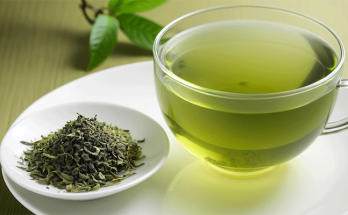
London: In this day and age of healthy living, innumerable supplements, and trips to the nutritionist, many turn a blind eye to the ancient, Tried-and-tested benefits of everyday ingredients found easily in most well-stocked pantries. From the subcontinent’s Fertile Crescent to the expansive plains of Sumeria, our predecessors cultivated turmeric and flaxseeds for medicinal and health purposes.
Recently, nutritionists and health nuts alike have woken up to the potential of incorporating these ingredients into a regular, healthy diet. Flaxseeds are high in fiber, which helps to fill you up, keep you full longer, and aids in digestion and heart health,” says Fresh Thyme Market’s health and lifestyle expert, Meghan Sedivy, RD, LN.
Joint Pain: Turmeric & Flaxseeds Health Benefits
Turmeric Health Benefits:
This is a real wonder herb. Local to South Asia, turmeric (or Haldi) is commonly used in regional cooking: curries, saalans, etc. However, the health benefits come from its raw form – the miraculous gold-yellow powder itself. In its chemistry, turmeric includes curcumin, “shown to exhibit antioxidant, anti-inflammatory, antiviral, antibacterial, antifungal and anticancer activities,” (Bharat B Aggarwal, Young-Joon Surh, Shishir Shishodia, Curcumin: the Indian solid gold). Although research only recently unearthed these activities, Ayurvedic healing practices, that spanned centuries, figured this out early and use turmeric for healing, restorative and cosmetic purposes.
“It’s brilliant for overall fitness, skin, and burning fat,” says Zarak Khan, physical trainer, nutritionist, and director of ZK Fitness, Islamabad. Khan adds, “When coupled with a strong workout regimen, turmeric tones the body, encourages muscle development, and cleanses the system.”
Research also shows that urine samples of smokers with regular turmeric intake pass little to no mutagens (cancer-causing agents) compared to those who exclude the herb from their diet.
Due to turmeric’s largely pungent taste and aroma, many are put off by the idea of consuming it. Diluting a teaspoon (daily) of Haldi in a shot of milk with some honey or taking turmeric capsules — available at most drugstores, pharmacies, and homeopaths — solves the problem of taste.
Flaxseeds Health Benefits:
Also known as common flax or linseed, flax grows indigenously in the Fertile Crescent and Mediterranean regions. The oil itself — extremely high in nutritional/health value — comes from the seeds. According to whfoods.com, “Flaxseeds are rich in alpha-linolenic acid (ALA), an omega-3 fatty acid.” Both ALA and omega-3 fatty acids protect the body against cancer, heart diseases, diabetes, and high blood pressure. Moreover, they maintain a visibly healthy body which helps to retain flawless skin, strong bones, and healthy hair and nails.
Another plus, linseed oil is a popular alternative to fish oil supplements, ideal for people repulsed by the idea of taking fishy castor oil supplements (fishy burps ensue) or spending thousands of rupees on expensive Norwegian Salmon Oil tablets (they’re easier on the tummy).
“Linseed oil is a popular buy here,” says the manager at Shaheen Homeo Store. “Especially with older people, who get it a lot because it is very healthy and controls their blood pressure.”
Similarly, the dietary fiber from the flax plant itself is an excellent source of nutrition; more and more people bake it into their bread to improve digestion and blood circulation. It also helps stabilize blood sugar levels and safeguard against cancer (particularly prostate and breast cancer).
Again, like turmeric, flax (in both seed and oil forms) is an easy find: check your kitchen or pick some up while you are out grocery shopping. Both are extremely affordable and extremely vital for hale and hearty living.
More About Flaxseed
Flaxseed is a small, brown, or golden seed that is packed with nutrients. It is a good source of fiber, protein, and omega-3 fatty acids. Flaxseed has been linked to a number of health benefits, including:
Reduced risk of heart disease. Flaxseed contains alpha-linolenic acid (ALA), an omega-3 fatty acid that has been shown to lower blood pressure, cholesterol levels, and inflammation.
Reduced risk of cancer. Flaxseed contains lignans, which are plant compounds that have been shown to have anti-cancer properties. Studies have shown that flaxseed may help to reduce the risk of breast cancer, prostate cancer, and colon cancer.
Improved digestive health. Flaxseed is a good source of fiber, which can help to keep your digestive system healthy. Fiber can help to regulate bowel movements, prevent constipation, and promote regularity.
Weight loss. Flaxseed is a low-calorie food that can help you to feel full. This can help you to eat fewer calories and lose weight.
Improved skin health. Flaxseed contains omega-3 fatty acids, which are essential for healthy skin. Omega-3 fatty acids can help to keep your skin hydrated, reduce inflammation, and protect against sun damage.
Improved hair health. Flaxseed contains omega-3 fatty acids, which are essential for healthy hair. Omega-3 fatty acids can help to keep your hair strong, shiny, and hydrated.
Flaxseed is a versatile food that can be added to a variety of dishes. It can be ground into a powder and added to smoothies, yogurt, oatmeal, or baked goods. It can also be sprinkled on salads or added to soups and stews.
When choosing flaxseed, look for whole seeds that are a light brown or golden color. Avoid flaxseed that is dark brown or has a musty smell. Flaxseed should be stored in a cool, dark place and used within a few months.
Flaxseed is a healthy and nutritious food that can be enjoyed by people of all ages. If you are considering adding flaxseed to your diet, talk to your doctor first.
Flaxseeds are a versatile food that can be added to a variety of dishes. They can be ground up and added to baked goods, yogurt, oatmeal, or smoothies. They can also be sprinkled on salads or vegetables. Flaxseeds are a healthy addition to any diet.
Here are some tips for including flaxseeds in your diet:
- Grind flaxseeds before adding them to food. This will help your body to absorb the nutrients more easily.
- Start with a small amount of flaxseeds and gradually increase the amount you eat. This will help to prevent any side effects, such as diarrhea.
- Store flaxseeds in a cool, dark place.
- Avoid cooking flaxseeds, as this can destroy some of the nutrients.
If you are pregnant or breastfeeding, talk to your doctor before adding flaxseeds to your diet.









